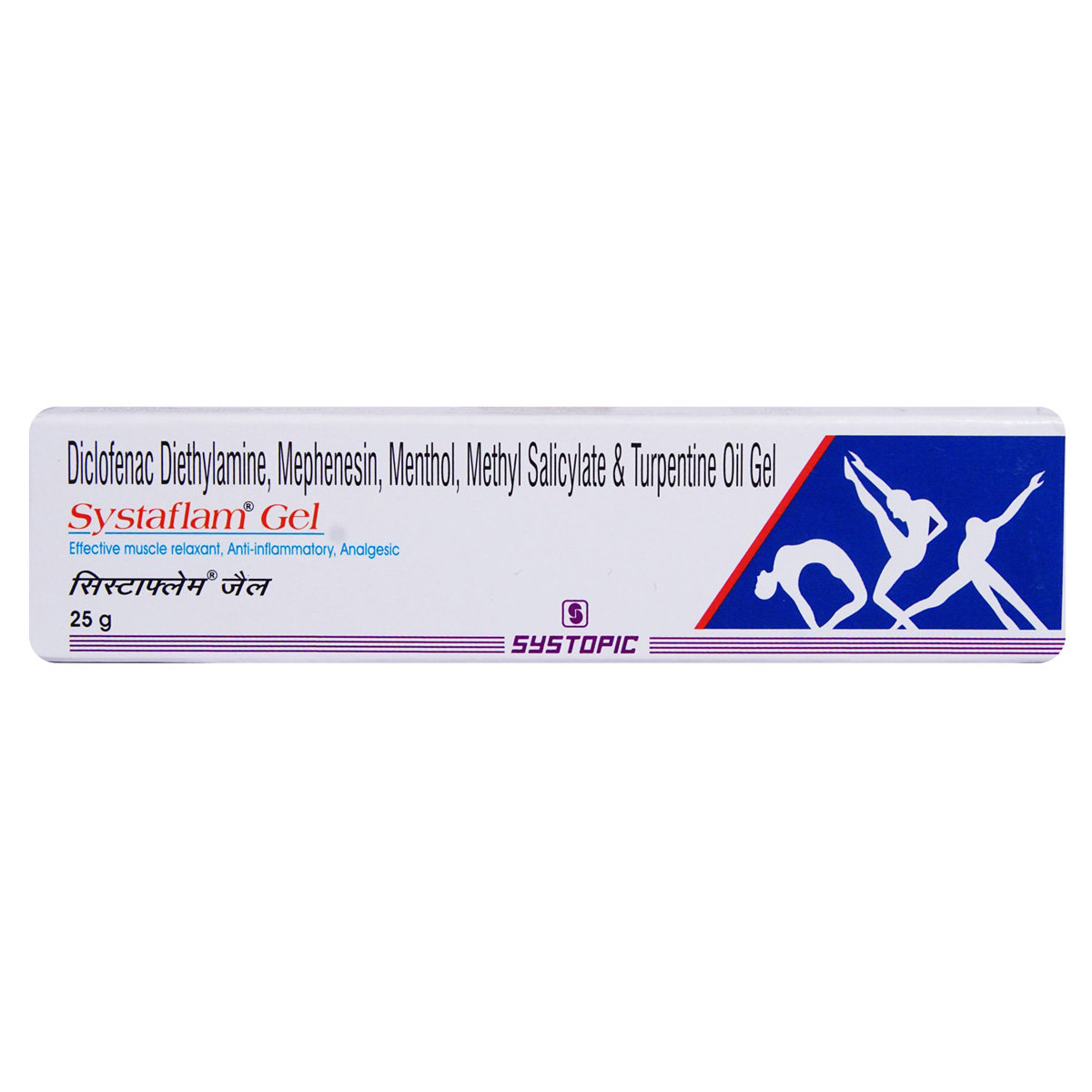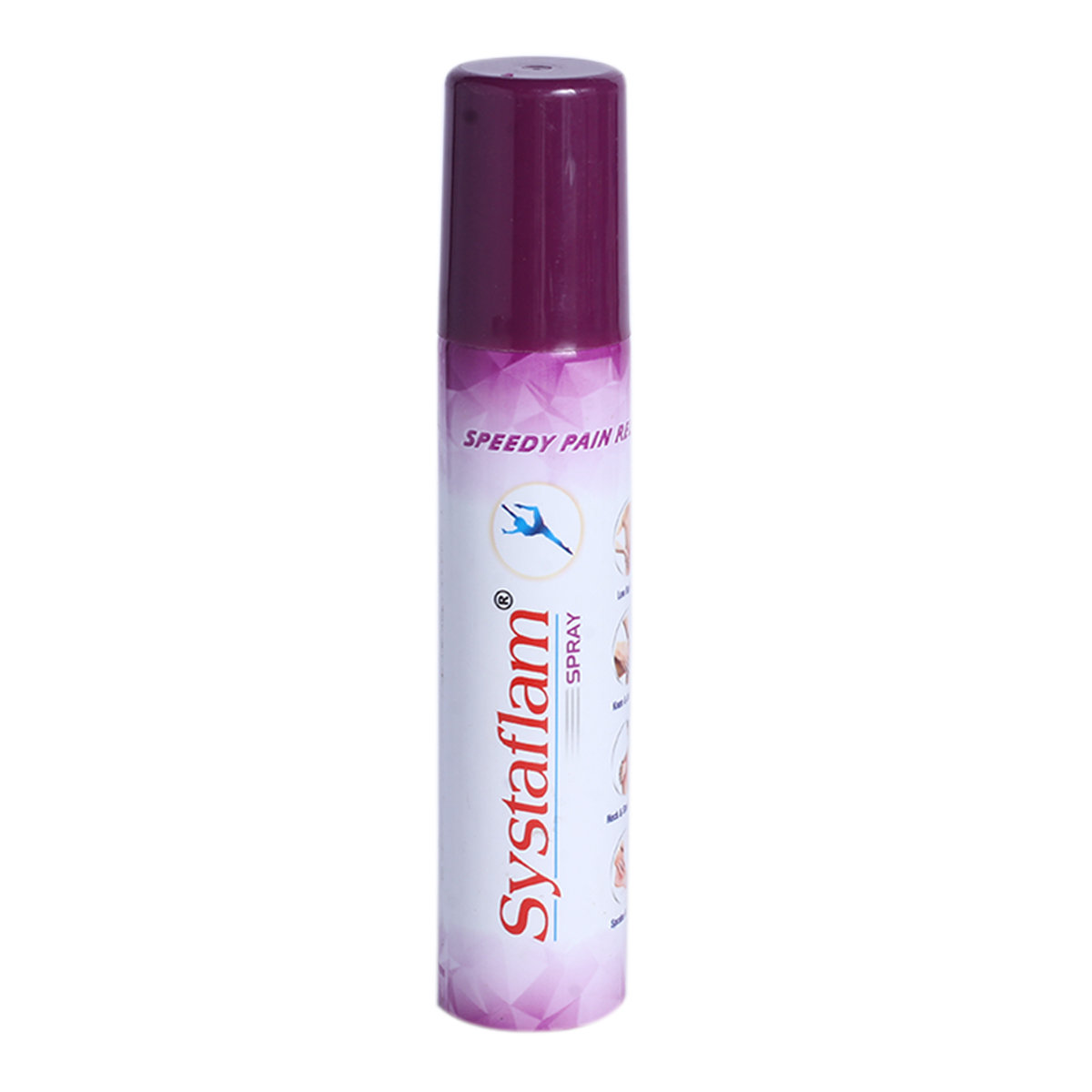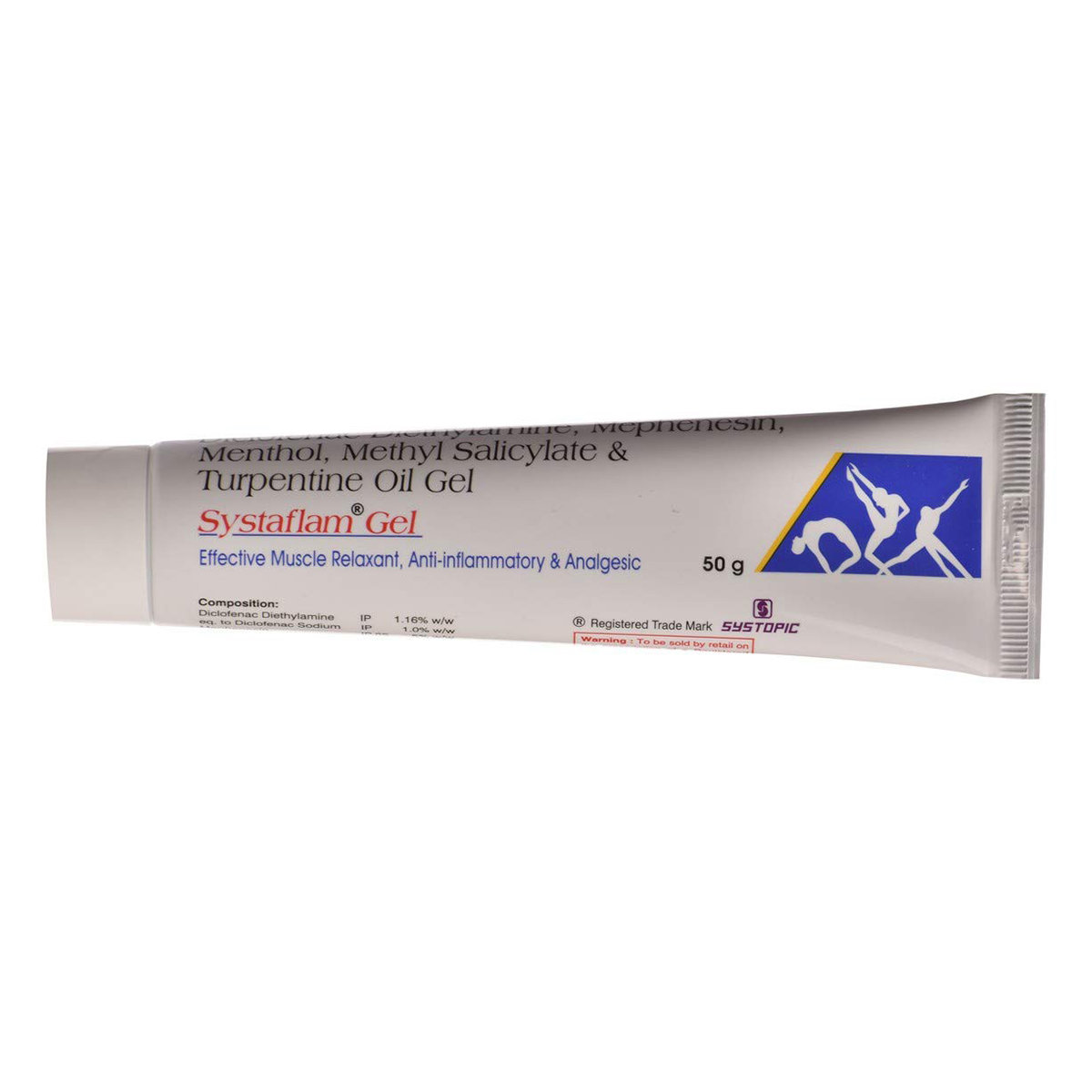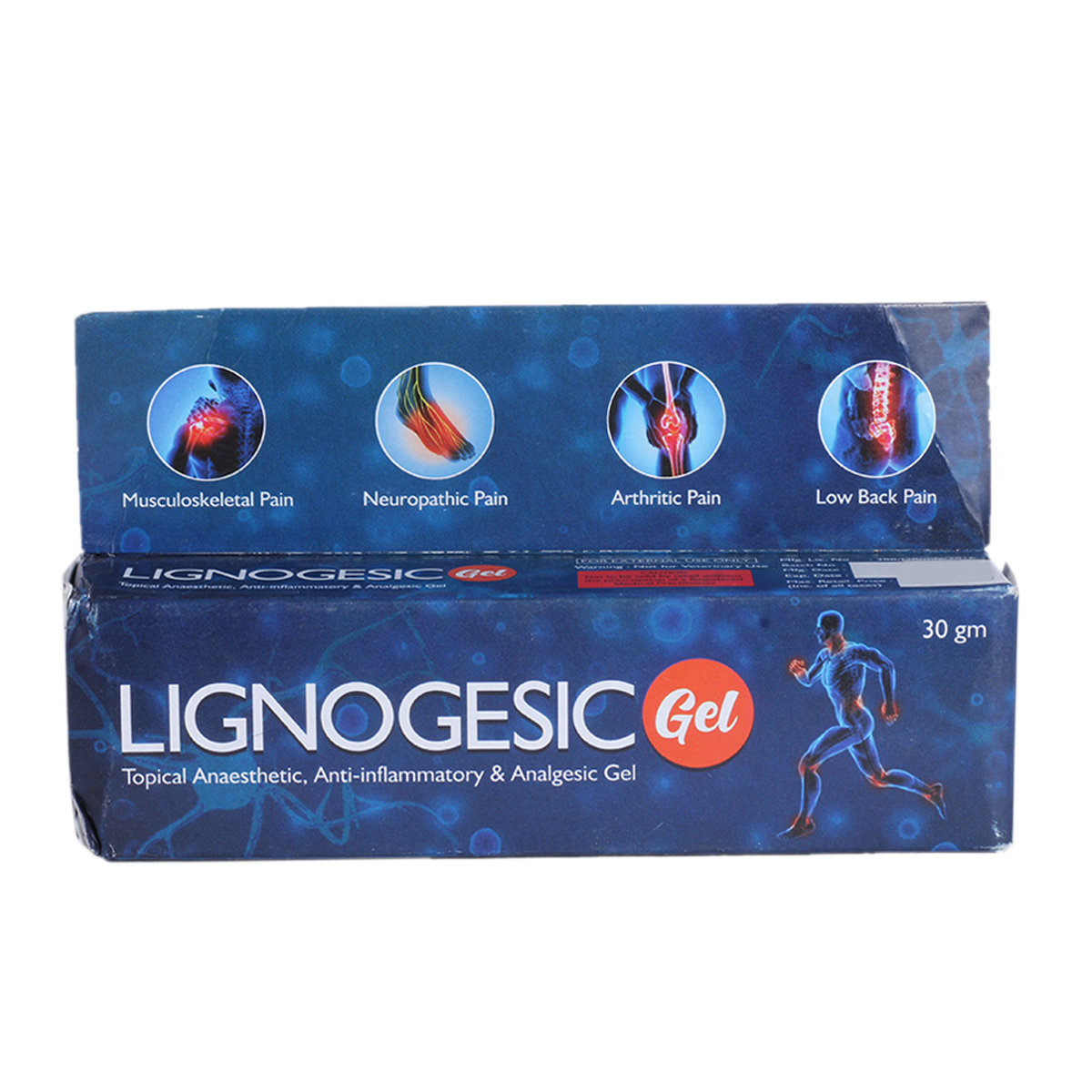Diclofenac+mephenesin+menthol+turpentine Oil+methyl Salicylate
About Diclofenac+mephenesin+menthol+turpentine Oil+methyl Salicylate
Diclofenac+mephenesin+menthol+turpentine Oil+methyl Salicylate is a combination medicine used to relieve pain and inflammation associated with musculoskeletal disorders, strain, sprain, arthritis, and low back pain. Musculoskeletal pain could occur due to arthritis, osteoporosis, fractures, dislocations, problems with the bone structure, or injury to the bones, joints, tendons, muscles, and ligaments. Osteoarthritis is a joint disease in which the two ends of the joints come together due to the breakdown of a protective covering called cartilage.
Diclofenac+mephenesin+menthol+turpentine Oil+methyl Salicylate combines five medicines: Diclofenac, Mephenesin, Menthol, Turpentine oil and Methyl salicylate. Diclofenac is a non-steroidal anti-inflammatory drug (NSAID) that blocks the release of certain chemical messengers in the brain responsible for causing pain and symptoms of inflammation, redness and swelling. Mephenesin is a muscle relaxant (that relaxes the muscle and treats muscle pain). It works on the brain and spinal cord centres to relieve muscle hardness or spasms and improve the pain and movement of muscles. Methyl salicylate and Menthol are topical analgesics (applied directly to alleviate pain). They work initially by cooling the skin, followed by warming it up. This action helps in improving blood circulation and provides relief from pain. Turpentine Oil is a lubricant.
Diclofenac+mephenesin+menthol+turpentine Oil+methyl Salicylate is for external use only. Avoid getting the Diclofenac+mephenesin+menthol+turpentine Oil+methyl Salicylate in contact with your eyes, nose or mouth. Do not apply it to wounded or damaged skin. In case of accidental contact, immediately rinse it with cold water. Like all medicines, Diclofenac+mephenesin+menthol+turpentine Oil+methyl Salicylate can cause side effects, although not everybody gets them. You might experience side effects such as a burning sensation, irritation, itching and redness at the application site. Most of these side effects of Diclofenac+mephenesin+menthol+turpentine Oil+methyl Salicylate do not require medical attention and gradually resolve over time. However, if the side effects are persistent, reach out to your doctor.
Do not use this medicine without consulting your doctor. Even though drugs used topically (directly applied) on the skin are not normally affected by any other medication, you should inform your doctor if you are taking any other medicine. Also, inform your doctor if you have had an allergic reaction to diclofenac or any other drugs in the past, any cut or infected skin and ever had signs of any lung, liver, kidney-related diseases/disorders, muscle weakness (myasthenia gravis), sleeping disorder or difficulty in sleeping (sleep apnoea). Please tell your doctor if you are pregnant or breastfeeding to avoid unnecessary risks.
Uses of Diclofenac+mephenesin+menthol+turpentine Oil+methyl Salicylate
Medicinal Benefits
Diclofenac+mephenesin+menthol+turpentine Oil+methyl Salicylate combines five medicines: Diclofenac, Mephenesin, Menthol, Turpentine oil, and Methyl salicylate. Here, diclofenac works by blocking the release of certain chemical messengers in the brain responsible for causing pain and signs of inflammation such as redness and swelling. Mephenesin is a muscle relaxant (that relaxes the muscle and treats muscle pain). It works on the brain and spinal cord centres to relieve muscle hardness or spasms and improve the pain and movement of muscles. On the other hand, methyl salicylate and menthol work by causing the skin to feel cool and warm. This action helps improve blood circulation and thus provides relief from pain. Turpentine Oil is a lubricant.
Directions for Use
Storage
Side Effects of Diclofenac+mephenesin+menthol+turpentine Oil+methyl Salicylate
- Burning
- Irritation
- Itching
- Redness
Drug Warnings
Consumption of alcohol should be avoided during the treatment with Diclofenac+mephenesin+menthol+turpentine Oil+methyl Salicylate as it may lead to an increased risk of liver damage. Patients with stomach ulcers, gastric bleeding, severe heart failure, high blood pressure and liver or kidney disease should not take Diclofenac+mephenesin+menthol+turpentine Oil+methyl Salicylate. Besides this, it should be avoided during the last trimester of pregnancy unless the doctor has prescribed you. If you have a severe allergy to painkillers and have conditions like asthma, rhinitis, angioedema (swelling under the skin) or skin rashes, immediately stop taking Diclofenac+mephenesin+menthol+turpentine Oil+methyl Salicylate.
Drug Interactions
Drug-Drug Interactions: Diclofenac+mephenesin+menthol+turpentine Oil+methyl Salicylate may interact with muscle relaxants (Methadone, opioid), blood thinners (warfarin, aspirin), diuretics (furosemide and thiazide), and heart-related medicine (digoxin) interact with Diclofenac+mephenesin+menthol+turpentine Oil+methyl Salicylate. If you are taking these medicines, make sure you contact the doctor before taking Diclofenac+mephenesin+menthol+turpentine Oil+methyl Salicylate.
Drug-Food Interactions: No interaction found.
Drug-Disease Interactions: People with peptic ulcer, gastric bleeding, severe heart failure and high blood pressure should avoid intake of Diclofenac+mephenesin+menthol+turpentine Oil+methyl Salicylate as it may lead to unpleasant side effects.
Drug-Drug Interactions Checker List:
Safety Advice

Alcohol
cautionIt is unknown whether it is safe to consume alcohol with Diclofenac+mephenesin+menthol+turpentine Oil+methyl Salicylate. However, as a precautionary measure, it is advisable not to take or limit alcohol.

Pregnancy
cautionDiclofenac+mephenesin+menthol+turpentine Oil+methyl Salicylate is not recommended during pregnancy unless your doctor considers it essential. Please consult the doctor. Your doctor will weigh the benefits and potential risks before prescribing them.

Breast Feeding
cautionDiclofenac+mephenesin+menthol+turpentine Oil+methyl Salicylate should not be used in nursing mothers unless necessary. So, inform your doctor if you are a nursing mother. Your doctor will weigh the benefits and potential risks before prescribing Diclofenac+mephenesin+menthol+turpentine Oil+methyl Salicylate.

Driving
safe if prescribedDiclofenac+mephenesin+menthol+turpentine Oil+methyl Salicylate does not impact your ability to drive or operate machinery.

Liver
unsafeLimited information was available about using Diclofenac+mephenesin+menthol+turpentine Oil+methyl Salicylate in patients with liver disease. If you have concerns about utilising Diclofenac+mephenesin+menthol+turpentine Oil+methyl Salicylate in patients with liver disease, please visit your doctor. Only if the benefits outweigh the risks will your doctor prescribe.

Kidney
cautionLimited information was available about using Diclofenac+mephenesin+menthol+turpentine Oil+methyl Salicylate in patients with kidney disease. If you have concerns about utilising Diclofenac+mephenesin+menthol+turpentine Oil+methyl Salicylate in patients with kidney disease, please visit your doctor. Only if the benefits outweigh the risks will your doctor prescribe.

Children
cautionDiclofenac+mephenesin+menthol+turpentine Oil+methyl Salicylate is not recommended for children as safety and effectiveness have not been established.
Habit Forming
Diet & Lifestyle Advise
- Include more glucosamine, chondroitin sulfate, Vitamin D, and calcium-enriched supplements. Besides this, turmeric and fish oils can help reduce inflammation in the tissue.
- Please do not go for heavy exercise as it may increase your joint pain in arthritis. Instead, you can do stretching, low impact aerobic exercises like walking on a treadmill, bike riding and swimming. You can also strengthen your muscle strength by lifting light weights.
- In the chronic conditions of arthritis or joint pain, fish like salmon, trout, tuna and sardines. These fishes are enriched with omega-3 fatty acids with a minimum level of chemicals called cytokines, which ramp up inflammation.
- Your sitting posture is important, especially when you have pain and inflammation. Try to sit as little as possible and only for a short time (10-15 min). Use back support like a rolled-up towel to minimise pain at the back of your curve. Keep your knees and hips at a right angle. Besides this, you can use a footrest if required.
Special Advise
- Caution should be exercised, and it is advisable to consult a doctor before using it. “Nonsteroidal anti-inflammatory drugs (NSAIDs) cause an increased risk of serious cardiovascular thrombotic events, including myocardial infarction and stroke.
- Diclofenac+mephenesin+menthol+turpentine Oil+methyl Salicylate should not be applied to cut or open skin wounds for pain relief.
Patients Concern
Disease/Condition Glossary
Musculoskeletal pain: Musculoskeletal pain affects the bones, muscles, ligaments, tendons, and nerves. It can be acute or chronic and can be localized or widespread. The pain can be mild or severe enough to interfere with your daily routine. Musculoskeletal pain could occur due to arthritis, osteoporosis, fractures, dislocations, problems with the bone structure, or injury to the bones, joints, tendons, muscles, and ligaments. Musculoskeletal pain symptoms include stiffness, swelling, redness, weakness, muscle spasms or twitching, trouble moving the affected area, soreness, cracking, or popping sounds at the joints.
Osteoarthritis: Osteoarthritis is a joint disease in which the two ends of the joints come together due to the breakdown of a protective covering called cartilage. Due to the absence of this protective covering, the joints rub against each other, leading to pain and stiffness. Symptoms include pain, stiffness, inflammation, and tenderness.
FAQs
Diclofenac+mephenesin+menthol+turpentine Oil+methyl Salicylate combines five medicines: Diclofenac, Mephenesin, Menthol, Turpentine oil and Methyl salicylate. Diclofenac is a non-steroidal anti-inflammatory drug (NSAID) that blocks the release of certain chemical messengers in the brain responsible for causing pain and symptoms of inflammation, redness and swelling. Mephenesin is a muscle relaxant (that relaxes the muscle and treats muscle pain). It works on the brain and spinal cord centres to relieve muscle hardness or spasms and improve the pain and movement of muscles. Methyl salicylate and Menthol are topical analgesics (applied directly to alleviate pain). They work initially by cooling the skin, followed by warming it up. This action helps in improving blood circulation and provides relief from pain. Turpentine Oil is a lubricant.
Avoid concomitant use of Diclofenac+mephenesin+menthol+turpentine Oil+methyl Salicylate with other topical products such as cosmetics, sunscreens, lotions, moisturizers, insect repellent creams, and other gels.
Please do not take any NSAID/painkiller medicines along with Diclofenac+mephenesin+menthol+turpentine Oil+methyl Salicylate as it could increase the risk of ulceration, perforation, and bleeding in the stomach and intestine. Inform your doctor before using Diclofenac+mephenesin+menthol+turpentine Oil+methyl Salicylate if you are taking any NSAIDs orally.
No, use of Diclofenac+mephenesin+menthol+turpentine Oil+methyl Salicylate is contraindicated on the broken or cut wound skin. It should be only applied topically on the uppermost skin surfaces (epidermis). It should not be applied in the nostrils, vagina or anus.
No, it is not advised to use Diclofenac+mephenesin+menthol+turpentine Oil+methyl Salicylate in patients with severe heart failure.
Avoid or limit exposure to natural or artificial sunlight as Diclofenac+mephenesin+menthol+turpentine Oil+methyl Salicylate may cause ultraviolet light-induced skin tumours.
Available Medicines for
Diclofenac+mephenesin+menthol+turpentine Oil+methyl Salicylate







